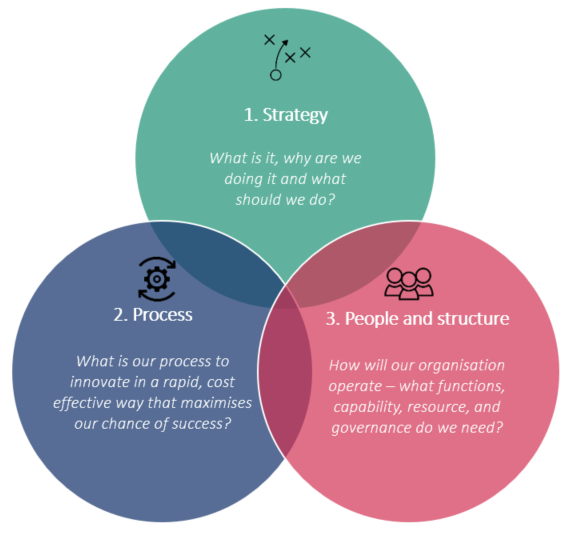
It is not difficult to select the best accounting software for small businesses. Security, user roles as well as reporting and analytics are important considerations. This article will discuss some important areas to consider in choosing the right system for your needs. You'll be able to identify the key features you should look for in an accounting software. These are some important points to consider when choosing accounting software for small businesses.
Data security
Data breaches are very common in the accounting industry. Data breaches are becoming more frequent. This is because of the EU's General Data Protection Regulation. It is essential to ensure that your accounting software has effective cybersecurity measures to prevent such problems. These controls are essential to protect corporate and client sensitive information. These are the three most important steps you can take to protect your data. Continue reading to learn more.

User roles
CosmoLex lets users choose one of several roles depending on their firm's needs. Billing Only users, for example, can create invoices and enter time cards. However, they must have permissions from the Matter Owner to view time cards. Timekeepers are another role that can be assigned to view and input time cards, but they cannot view any data in the system. Multiple permissions can be granted to users at different levels. These are called Application Roles.
Reporting
Accounting software programs generally allow you to create custom reports. However, more advanced systems may offer account analytics. Account analytics involves the analysis of Big data, typically to answer an accounting query. In other words, tabular reporting presents descriptive statistics in a table format. This reporting method is used to assist users in creating analysis reports by grouping data together into different classes. This data can then be used to calculate statistics or accounting analysis. This functionality is vital for all business sizes.
Analytics
Big data analytics and analytics give companies actionable insights as well as deep insight into their cash flows. Banks can optimize their liquidity management by analysing transaction history and other public information. These technologies also help banks reduce their credit risk and manage the collateral for their credits. They can prevent them from becoming unmanageable by early detection. Analytics in accounting programs are also growing due to the use of cloud computing and real-time reports. Here are three benefits to using analytics in accounting programs.

Prices
The number and price of accounting software are directly related to the number of users it supports. These users are commonly called users by software vendors. However, concurrent users can refer to any number or users who can log on to the software. A five-person construction firm will not need the same support as a large construction company with many users. Software vendors may be able to provide extensive support for large construction firms. Accounting software's price will vary depending on how many users are involved.
FAQ
How do you start an LLC consultancy company?
The first step is to decide what service provider you want to be. Then, make sure that you are qualified for these services. It might also help to find someone who already does what you want to offer and see how they operate.
Once you know your product/service, you should start looking for the right market. You may have to create more if there aren’t enough.
You then have to decide whether or not you want to open your own company, or hire other people to do it.
A license from the state could be required to start your own consulting business. However, this can take some time and require legal fees.
How is consulting different to freelancing
Freelancers are self-employed individuals who offer their services to clients without employees of a company or agency. Hourly rates are usually charged based on the time they spend working on a client’s project. Consultants usually work for agencies or companies that employ them. Their salaries are paid usually monthly or annually.
Consultants often have more flexibility, while freelancers can choose to work when they want and set their own rates. However, consultants often have better benefits, such as health insurance, vacation days, sick leave, retirement plans, etc.
Who hires consultants
Many organizations hire consultants to assist with projects. This includes small businesses, large corporations and government agencies.
Some consultants work directly for these organisations, while others freelance. The hiring process for both cases varies depending upon the project's size and complexity.
When hiring consultants, you will probably go through several rounds of interviews before choosing the person you think would be best suited for the position.
What skills is required to consult?
As a consultant, you should have both strong interpersonal skills and analytical skills. This is because you could be asked questions or not know what you are doing. It is important to learn how to quickly solve problems and manage people.
Communication skills are essential. Most clients expect to hear back within 24 hours. If they don’t hear back, they assume that you aren’t interested. It is important to keep them updated and make sure they fully understand the situation.
What degree do I need to become a consultant?
You can become an expert in any subject by learning the subject thoroughly, then applying what you have learned.
So if you want to learn how to become a great consultant, start studying now!
Employers may be reluctant to hire people with a degree, but not the relevant experience. But, if your qualifications are comparable to those who have been hired, you might still be eligible to apply.
Employers are always looking for people with real-world knowledge.
Do I have to pay tax on consulting income
Yes, you will need to pay tax on your consultancy profits. This amount will depend on how much you earn each year.
If you're self-employed, you can claim expenses on top of your salary, including rent, childcare, and food.
However, you can't deduct interest payments for loans, vehicle depreciation or the cost to purchase equipment.
Only 25% of your expenses can be claimed back if you make less than PS10,000 annually.
You might be taxed even if you make more than the threshold depending on whether your income is contractor or employee.
The PAYE tax for employees and the VAT tax for contractors is generally paid as you earn.
Statistics
- 67% of consultants start their consulting businesses after quitting their jobs, while 33% start while they're still at their jobs. (consultingsuccess.com)
- Over 50% of consultants get their first consulting client through a referral from their network. (consultingsuccess.com)
- WHY choose me: Why your ideal client should choose you (ex: 10 years of experience and 6-week program has helped over 20 clients boost their sales by an average of 33% in 6 months). (consultingsuccess.com)
- So, if you help your clients increase their sales by 33%, then use a word like “revolution” instead of “increase.” (consultingsuccess.com)
- On average, your program increases the sales team's performance by 33%. (consultingsuccess.com)
External Links
How To
How do you find the best consultant?
Ask yourself what you want from your new consultant before you start looking. Before you begin looking for a consultant, it is important to know what your expectations are. Before you start looking for a consultant, make a list. This might include skills such as project management, professional expertise, communication, availability, and technical skills. You might also want to talk with colleagues or friends about their recommendations. Ask your friends and colleagues if they have had bad experiences with consultants in the past. Compare their recommendations with yours. Research online if you don’t already have recommendations. There are many websites, such as LinkedIn, Facebook, Angie's List, Indeed, etc., where people post reviews of their previous work experiences. Use the feedback and ratings of others as a starting point to search for potential candidates. Once you have a short list of candidates, contact them to arrange an interview. At the interview, it is important to discuss your requirements and get their feedback on how they can help. It doesn't matter if they were recommended to your company; all that matters is that they are able to understand your business goals and show how they can help.